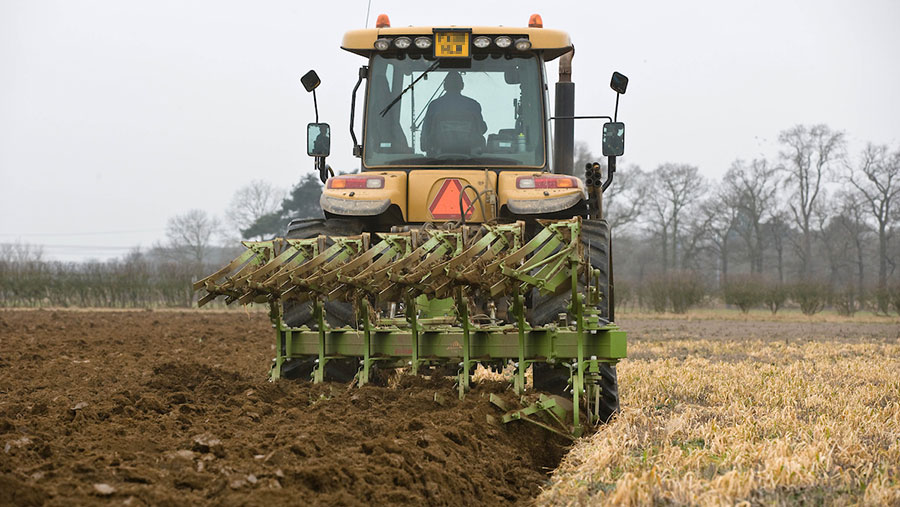Farmworker wage rise outpaced by other sectors
 © Tim Scrivener
© Tim Scrivener Farmworker earnings have risen by 3% in 2019, helped by the government’s minimum and living wage policy.
This is a smaller rise than the national wage growth average of 3.8%, but pay rates have still risen faster than the annual rate of inflation, which stood at 1.9% in October.
The average weekly earning in September stood at £408 for agriculture, forestry and fishing sector workers, according to the Office of National Statistics.
See also: Farm wage rates need to rise by more than inflation
However, during the same period, earnings in the construction industry increased by 5% compared with figures for a year earlier.
The increase has widened the gap for pay rates between the two sectors, with construction workers receiving an average £667/week in September – £259/week more than their farming counterparts.
AHDB analyst Charlie Reeve said that with the unemployment rate in the UK at just 3.8%, agriculture would need to be more competitive to attract high-quality workers.
“The combination of an ageing labour force, shortage of seasonal labour, and high employment rates are all factors that are likely to lead to staffing issues for many farm businesses,” Mr Reeve said.
However, he added that despite average weekly earnings being lower for agriculture, some farmworkers had accommodation included as part of their remuneration package.
“This is a significant saving for employees compared to other industries and may therefore bring the average down overall,” said Mr Reeve.
Above-inflation pay rises needed
The warning over competition for staff comes after land management firm Strutt & Parker suggested farm businesses in England may need to award above-inflation pay rises for 2019-20 to meet increases in the living wage and rising agricultural wage rates in the rest of the UK.
For farm employers in England, Strutt & Parker’s recommendation for craftsman grade, covering the vast majority of workers, is a rise of 3.3%.
The firm’s guidance is based on analysis of key market indicators such as pay levels agreed by continuing wage boards outside England, the rate of inflation and the outcome of public sector pay awards.
The pay bodies in Wales, Northern Ireland and Scotland agreed pay increases for craftsman-grade workers (grade 4 equivalent) of between 2.2% and 4.8%, with effect from 1 April 2019, Strutt & Parker pointed out.
The highest rate agreed was in Scotland, where the minimum rate for a craftsman worker is now £9.46/hour, it added.
Although an Strutt & Parker spokesman acknowledged the pay rate would be challenging, he said that employers in England should consider the 3.3% increase to the craftsman rate to bring it in line with wage rates in Scotland.
